Praise for When the Waters Came
When the Waters Came by Candice Sue Patterson is a beautiful story of love and faith triumphing over the worst of circumstances. Patterson adeptly drops wonderfully believable fictional characters into history and takes the reader on an unforgettable journey from tragedy to happily ever after.
–Kathleen Y’Barbo, Publishers Weekly bestselling author of New Leash on Life and the Bayou Nouvelle Brides
Crises always highlight the contrast between good and evil, and When the Waters Came shines a brave spotlight upon both. Human bravery and depravity are on full display in the aftermath of the Johnstown flood, and readers are taken on a swirling, heart-wrenching journey as characters wrestle with issues of faith, fault, and forgiveness. This compelling story kept me awake at night.
–Rhonda Dragomir, award-winning author of historical romance, including When the Flames Ravaged
Amazingly detailed and powerfully written, When the Waters Came will flood your heart with emotions—sorrow for the tragedy the people of Johnstown endured when the dam broke, admiration for those who labored to administer healing and justice, and tenderness for how God brings blessings out of disasters. Devastated by the ordeal he's endured, Monty struggles to hold onto his faith and minister to his congregation, even while he hides his ties to those responsible. Annamae arrives with the Red Cross, armed with zeal for social justice. But she just might need healing more than those she nurses. Love blooms amid devastation, offering a foundation for a stronger future if Monty and Annamae are willing to overcome their pasts. When the Waters Came sets the bar high for a series that highlights one of life's deepest mysteries, how God brings triumph out of tragedy.
–Denise Weimer, multi-published author of When Hope Sank and The Scouts of the Georgia Frontier Series
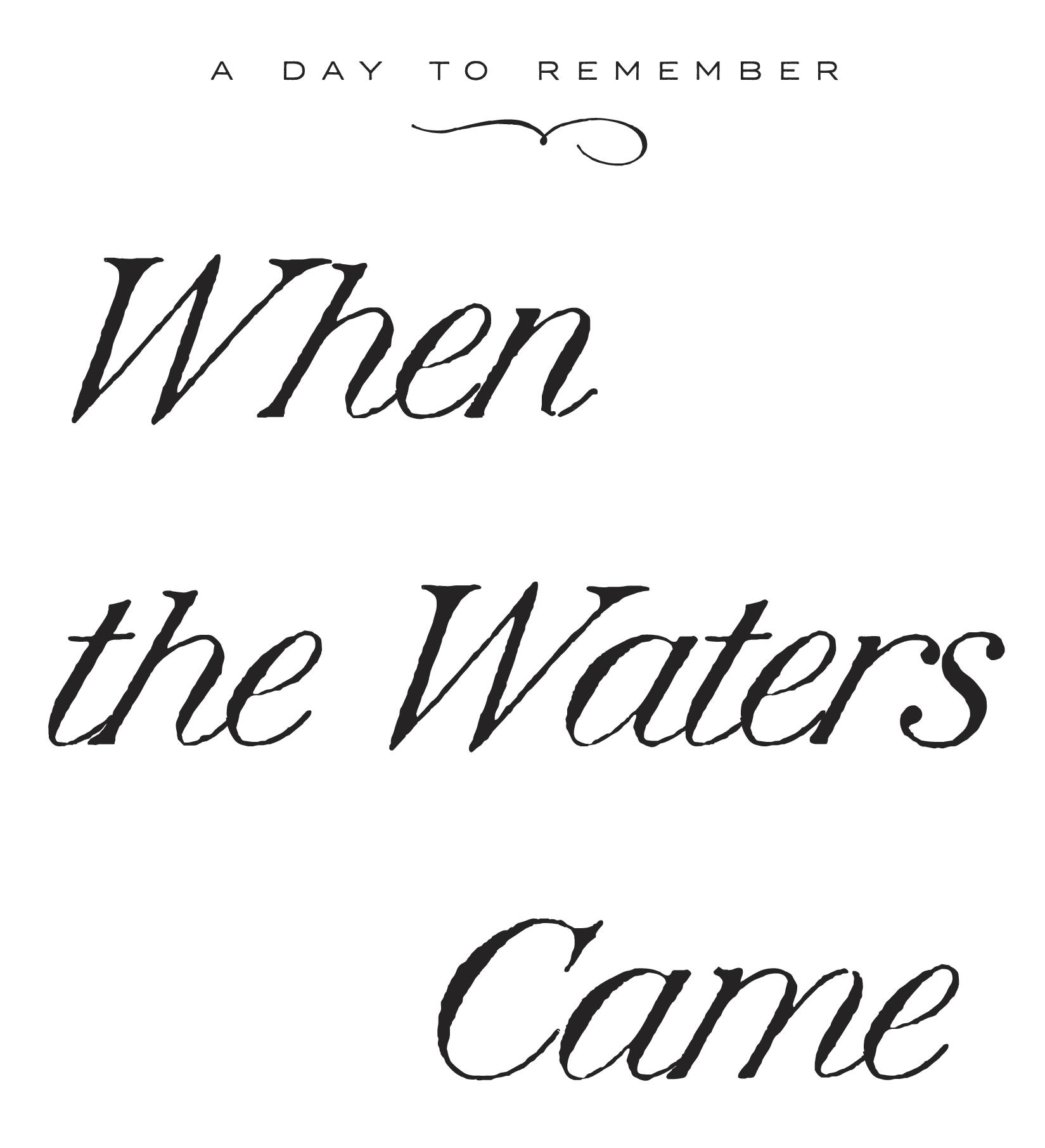

When the Waters Came ©2024 by Candice Sue Patterson
Print ISBN 978–1-63609–758-9
Adobe Digital Edition (.epub) 978–1-63609–759-6
All rights reserved. No part of this publication may be reproduced or transmitted in any form or by any means without written permission of the publisher. Reproduced text may not be used on the World Wide Web.
All scripture quotations, unless otherwise noted, are taken from the King James Version of the Bible.
This book is a work of fiction. Names, characters, places, and incidents are either products of the author’s imagination or used fictitiously. Any similarity to actual people, organizations, and/or events is purely coincidental.
Cover design by Faceout Studio
Published by Barbour Publishing, Inc., 1810 Barbour Drive, Uhrichsville, Ohio 44683, www.barbourbooks.com
Our mission is to inspire the world with the life-changing message of the Bible.
Printed in the United States of America.
DEDICATION
For the courageous residents of Johnstown, Pennsylvania, who endured that tragic day. No matter your end, may your lives and your stories never be forgotten.
FRIDAY, MAY 31ST, 1889
“Record that awful date in characters of funeral hue. It was a dark and stormy day, and amid the darkness and the storm the angel of death spread his wings over the fated valley, unseen, unknown.”
~Illustrated History of the Johnstown Flood by Willis Fletcher Johnson
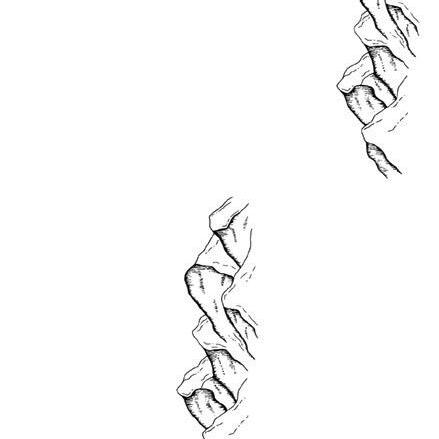
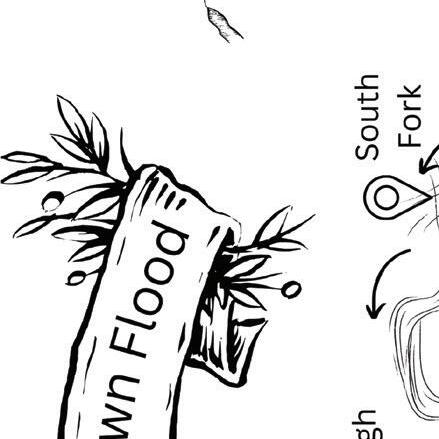
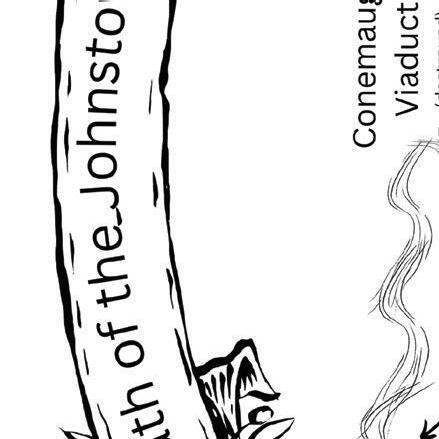
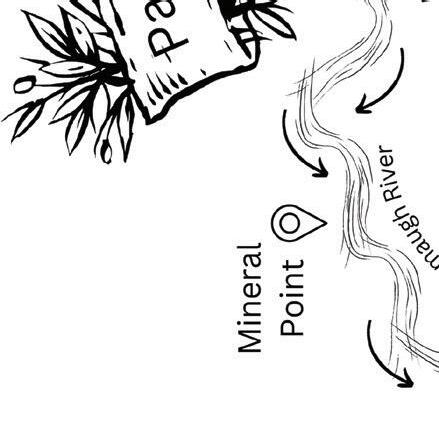
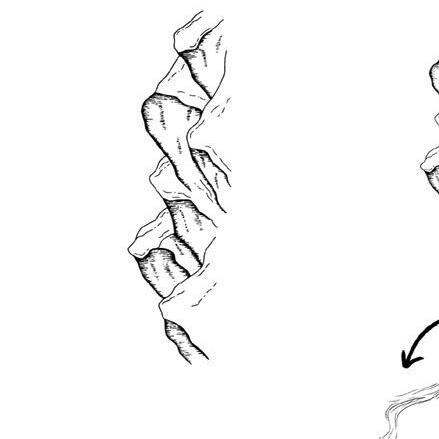

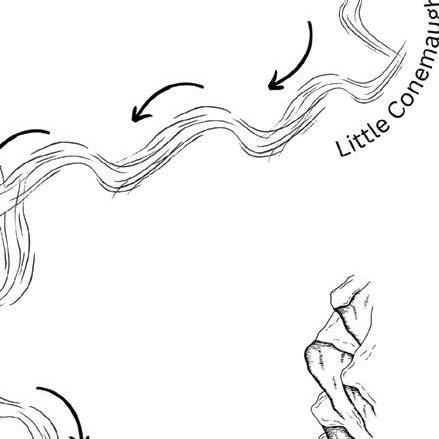
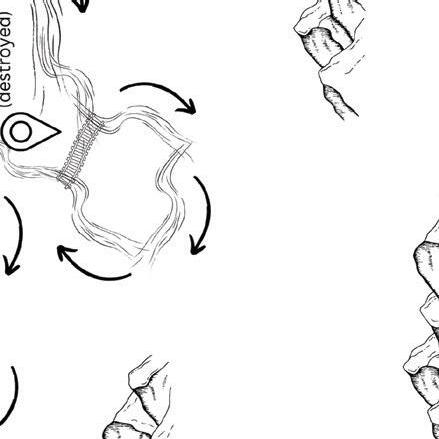
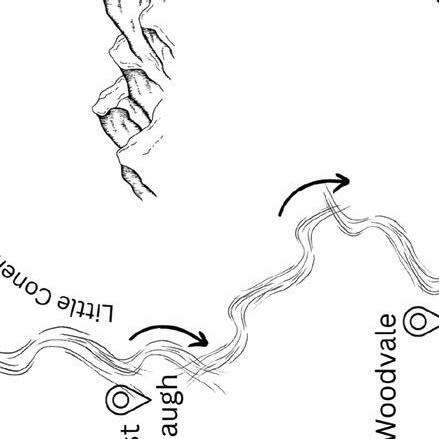
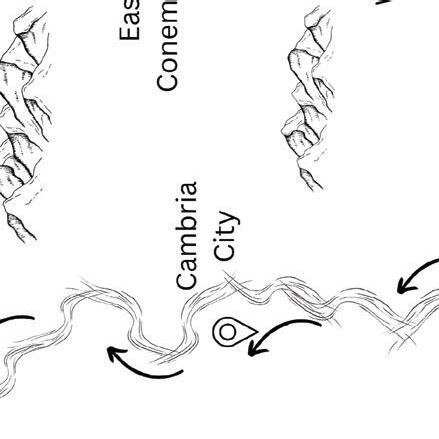
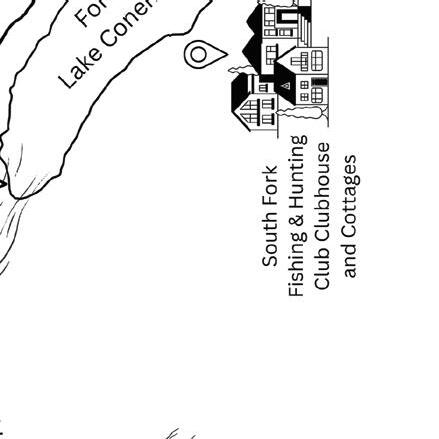
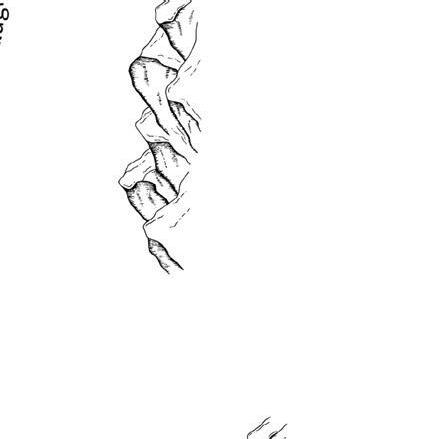
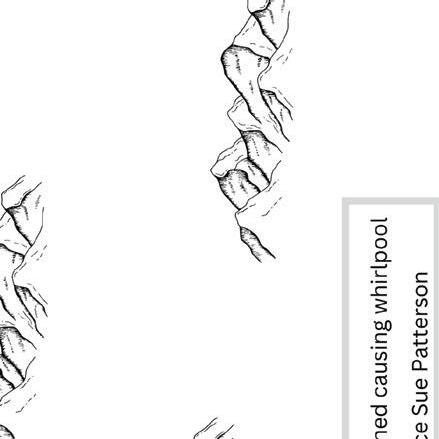
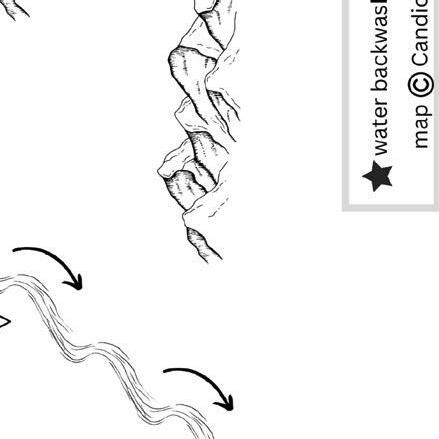
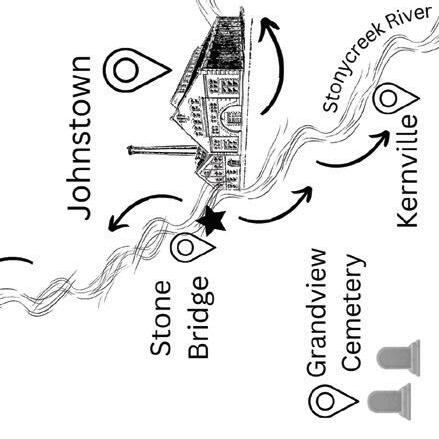
Chapter One

“The morning was delightful, the city was in its gayest mood with flags, banners, and flowers everywhere. . . . We could see almost everything of interest from our porch. The streets were more crowded than we had ever seen before.”
~Reverend H.L. Chapman, Johnstown Methodist Church
JOHNSTOWN, PENNSYLVANIA
MEMORIAL DAY, THURSDAY, MAY 30, 1889
Fog suspended from hemlock and spruce in a ghostly blanket that whispered along the peaks of decorated headstones, and the mourners gathered round. Boots sinking in the spongy earth, Pastor Montgomery Childs stood on the hillside and offered words of comfort and scriptures of hope to mothers who’d lost sons, to wives who’d lost husbands, and to veterans who’d lost comrades, limbs, and pieces of their hearts in the War of the Union. Would that this united land never consume such a number of souls so hastily again.
The Grand Army Veterans and Sons of Veterans stood erect on each side of Monty as darkening clouds moved overhead. The fire department
7 WHEN THE WATERS CAME
stood at the back of the crowd as well as the Hornerstown Drum Corps. Visitors joined them from towns as far as Somerset and Altoona.
A drop of rain hit the end of Monty’s nose as a trumpet’s doleful tone sliced the air. Would the rain never cease for more than a few hours? Though his residence in Johnstown was a meager two years, the native populace declared this the wettest spring in decades. Happy little creeks that bubbled and foamed through the Alleghenies were now rushing torrents emptying into the swollen Little Conemaugh River. The pickerel and bass needn’t exhaust any effort since the current carried them along. The ground was so saturated, even the violets and geraniums that crowned the forest floor bent in merciful prayer.
Monty rather enjoyed a rainy day. It cleansed, it healed, it sustained life. But this much rain was preposterous.
The American flag, held erect by Benedict Covington, hung limp as the sky unleashed. As Colonel Elwood’s last trumpet note faded away, Monty said, “That concludes our ceremony.”
He’d planned to say much more about the men who’d sacrificed their lives to give others freedom, but no words, no matter how eloquently spoken, meant anything when water puddled ankle high. Some attendees had traveled a long way to pay their respects and needed to board their trains before they floated away.
As the crowd dispersed down the curving path that led back to Johnstown, Monty opened his umbrella, tucked his Bible inside his coat, and followed behind the mass of spectators. At two thirty, the parade had started at the end of Main Street, marched through town, taken a right on Bedford, and then turned south to Sandyvale where Grandview Cemetery was spread out on the highest, flattest ground in the area.
It was beautiful property, stretching green in every direction. A wall of trees hindered any view of Johnstown lying in the bowl-like valley below, protecting visitors from the loud noises of the mills and the acrid stench of the smokestacks. The air here was the purest for miles around. Complaints ensued from members of the Austrian Music Society about the rain bathing their instruments. By the time the attendees reached their destination, they’d all suffer a good drenching. Yesterday’s Tribune
8 CANDICE SUE PATTERSON
predicted more rainstorms this evening and into tomorrow. What they needed was sunshine after the long, dreary winter.
In town, Monty picked up his pace toward home. He passed several businesses, closed until six so the proprietors and their families could join the festivities. With school out for the holiday, children scrambled about, playing in puddles and helping with chores. The town was in a cheerful mood, shouts of celebration and music replacing the clank and rumble of the mills. Men and women dashed about, undeterred by the weather. Residents were used to spring rain and spring floods, and little hindered them from their activities.
The Hulbert House brimmed with guests flowing in and out of the hotel, the first in Johnstown with an elevator. Drops of rain pinged off the No Vacancy shingle. Business everywhere was booming, especially this week with all the out-of-town guests exchanging currency.
Unfortunately, that meant the forty saloons open today benefited as well. There were a hundred and twenty-three across the valley, including establishments like Lizzie Thompson’s Place at the end of Locust Street, offering soiled doves at a fair price. Monty’s stomach turned each time he thought of it. He was the one those folks came to when they needed help or a way out of their debauchery. Some situations were just too complicated to repair.
He ducked under the opera house’s overhang that announced Zozo the Magic Queen and Uncle Tom’s Cabin playing at five and seven thirty. Once the streetcar passed, he dashed across the road and alongside dwellings and businesses to his home on Macedonia Street, east of the Stonycreek River. He was fortunate to live by the church a short distance from downtown and not nearer one of the mills where the homes were shacks or tenements sloppily built to house immigrant workers.
Johnstown was rough and bustling and growing. And yet, Monty felt more at home here among these people than he ever had with his family in the luxury of Pittsburgh’s East End.
As he stepped onto his front porch, he gazed up the mountain where the South Fork Fishing and Hunting Club roosted on the bank of Lake Conemaugh. He couldn’t see the exorbitant clubhouse from fourteen
9 WHEN THE WATERS CAME
miles away, of course, but the landscape materialized in his mind’s eye. Trees reflecting off the glassy surface of the water, sailboats slicing across the lake, couples strolling arm in arm down the boardwalk. The perfumed women dressed in white, with pink in their cheeks from the sunlight. The scent of brandy and imported cigars that clung to the finely tailored suits of the male guests after dinner.
Members, like his uncle, were rough and worldly in a different way from the Johnstown immigrants—and ten times greedier. Most folks in Johnstown were poor, while the men who owned the mills and factories where they worked ate lavish dinners in their servant-filled homes in Philadelphia and Pittsburgh and enjoyed extended weekends of pleasure at the lake.
After laboring sixteen hours a day, seven days a week, for wages which would never come close to providing for their families, the millworkers’ reward was the stench of the foundries clinging to their hair, clothes, and skin no matter how much soap they used or how many times they washed. Monty was honored to call such hardworking folks his brothers and sisters in Christ. They certainly had more integrity than most of the men who ran in his uncle’s social circle. Still, he prayed fervently for the souls of those men who were too wealthy to see their need for God—even if a camel walking through the eye of a needle was more likely than their humbling themselves to pray for salvation.
For the rest of the afternoon, Monty sat at his kitchen table studying the Bible for his Sunday sermon, eating the leftover trout he’d caught in Stonycreek yesterday, and writing a letter to his friend from seminary who’d recently taken a church near the Adirondack Mountains.
The rain stopped at five, just in time for the streetlamps to light up the town. Johnstown was low in the valley with the Alleghenies brushing the surrounding sky, and residents were lucky to see seven hours of sunlight per day.
During evening prayers, Monty asked the Lord for this to be the end of the rain.
Long after he’d fallen asleep, he awoke to a deluge beating on his roof. Monty rolled over, afraid the force with which it fell from the sky
10 CANDICE SUE PATTERSON
would send the downpour crashing through the shingles. He lay, drowsy in the dark, and waited. For what he didn’t know, but an ominous weight settled over him. After a while, the downpour lessened, and the pattering rhythm lulled him back to sleep.
11 WHEN THE WATERS CAME
Chapter Two

“River twenty feet and rising, higher than ever before; water in first floor. Have moved to second. River gauges carried away. Rainfall, two and three-tenth inches.”
~Telegraph sent to Pittsburgh at eleven o’clock by Mrs. H.M. Ogle, Signal Service representative and Western Union manager in Johnstown
FRIDAY, MAY 31
Monty awoke to two inches of water covering his lawn. He stood on his porch and measured it by the reflection in the streetlight. The rain had poured throughout the night and had yet to cease. By the time dawn crested the mountains at a quarter till ten, that number had grown to three. Spring flooding had arrived.
It happened every year when the snow melted off the mountains and the rains came, swelling the tributaries that rolled through Johnstown. The Little Conemaugh River intersected with Stonycreek at the Stone Bridge, where it flowed southeast and eventually released into the Atlantic. Though Monty still had much to learn about the valley and its inhabitants, he’d learned after his first spring to invest in a good pair of boots.
12 CANDICE SUE PATTERSON
He jammed his feet into them and raised the collar of his slicker high on his neck. The trek to Heiser’s General Store might be miserable, but it was better than going hungry like he had the year prior when the rising water held him hostage for two days straight.
The butcher shop was not open due to “flooding at home,” the sign read. Ruffed grouse and wild turkey hung from hooks in the window. Across the street, Mrs. Lowe and her son stepped out of the library and huddled together beneath an umbrella to protect their borrowed materials. The library was funded by the Cambria Iron Works and had recently started holding night classes for anyone in the community who wished to strengthen their education.
A hand slapped Monty’s shoulder, splashing water against his ears. He almost lost his footing in the mud where he’d stepped off the boardwalk to allow a group of ladies a clear path to the cafe. Everett McDonough steadied him by the arm. “What’re we to do with all this rain, Pastor?”
Monty squinted into the stormy sky. “Build an ark, I suppose.”
Everett chuckled. “May have to. Heard tell Cambria Iron Works sent their men home early to care for their families. Flooded tenements. The Little C is rising faster than folks can carry their belongings to the second floor. The telegraph office is closed for the day too. First floor filling up with water. Hettie’s working the wire from the second.”
Flooded tenements were nothing new. Poorly built in lower areas of the valley, some balanced on nothing but the runoff from the mill that had hardened like stone. The occupants were accustomed to securing their belongings higher during the rain. The telegraph office flooding was altogether different.
A crackle of thunder sounded above, and the rain gained in intensity. Monty had planned to make his purchases at Heiser’s since he needed to speak with George about Founder’s Day anyway; but if the monsoon continued at this pace, everything he bought would be ruined by the time he got home. James Quinn’s dry goods store was closer. Monty could survive off salt pork, rice, and beans for a few days.
They waded across the flooded street, now four inches and rising, and ducked beneath the overhang of the dry goods store where a patron exited
13 WHEN THE WATERS CAME
with his purchase. In the next instant, the door slammed and locked. Mr. Quinn squinted through the glass pane. Monty knocked, unsure what he would do if the man didn’t allow him inside.
Mr. Quinn’s stern frown accentuated his stylish Vandyke beard, threaded with as much gray as brown. He looked at his pocket watch then yanked the door open. “Five minutes, Pastor Childs. Then I’m going home to gather my family and get them to higher ground.”
The fear in the man’s voice thrummed a chord of unease in Monty’s gut.
“Thank you, Mr. Quinn.” Monty went straight to work gathering supplies while Everett waited on the porch.
As Mr. Quinn tallied Monty’s bill, he said, “You ever get a feeling deep inside, one so nagging and clear you know it must be God speaking to you?”
“I do. Trust His voice, Mr. Quinn. It’ll never steer you wrong.”
Monty helped the man slip his purchases into cloth bags he promised to bring back when the weather cleared.
“Rosina’s in Kansas visiting family. Little Marie’s had the measles. She’s recovering but weak. Hate to take her out in this cold rain, don’t want the daylight to bother her eyes, but I might just go home and gather Aunt Abbie and the kids and slip on out for a few days. I’m terrified that dam is going to break.”
The man’s hand trembled as he slid the bags across the counter.
“Thank you again for letting me inside. I’ll be praying it doesn’t. And for your family.”
Monty left the store and returned to the wet outdoors. There was something different in the air now. A foreboding from Mr. Quinn’s words that sat heavy against his chest. He wasn’t one to let other people’s fears poke at him, but this wasn’t a normal spring flood. And the dam that held back Lake Conemaugh at the South Fork Fishing and Hunting Club wasn’t safe. Thunder rolled across the valley.
Everett reached for a bag to lighten Monty’s load. “Heard tell the railroad officials sent a telegram warning folks to evacuate. Something about a bridge washed out two miles east and they expect more to follow. It’s also rumored the lake’s spilling over and the dam might break.”
“That rumor spreads through town every time it rains.” Monty faced
14 CANDICE SUE PATTERSON
the mountain, where a lake almost three miles long and a mile and a half wide hovered above them like the angel of death on Judgment Day.
James Quinn was known for being an anxious individual, and talk of the dam collapsing had been passed down through the generations until it had become folklore. If those warnings from the railroad officials held merit, few would take them seriously.
Folks had tried to convince the South Fork Fishing and Hunting Club to reinforce the dam for years. They’d ignored the pleas.
If the dam failed, it would decimate Johnstown.
Even without a collapse, if the rain continued, the two adjoining rivers that ran through Johnstown would swell large enough to put everyone in trouble. James Quinn was right in moving his family to higher ground.
“Something ’bout this is different, Pastor.”
The unease in Everett’s voice echoed Monty’s thoughts. “Heard tell of anything else I need to know?”
“Nah. Stay safe, Pastor. I’m off to see that the Mrs. and children stay dry. May not be in church on Sunday. If it rains through the night, we’ll be leaving on the morning train to visit my mother in Philadelphia until this weather changes course.”
“Godspeed, Everett.” Monty stuck out his hand.
With a firm grip, Everett grasped it. “Godspeed.”
He handed Monty the bag then stepped into the deluge. Monty remained under the porch’s covering, watching life move around him. Horse hooves navigated through the flooded streets. Five inches, if he gauged correctly. The barber, the bank, and Miss Millie’s Cookhouse seemed to conduct business as usual. Bodies raced toward the train station. Monty sent up a silent prayer for the protection of every soul before racing for home.
As he passed the Quinns’ large brick home, he spotted a little girl around the age of six sitting on the front porch step, barefoot and splashing in the water pooled in the yard. Ducklings swam around her ankles. Monty wasn’t familiar with the Quinn children, but he recognized Vincent, the girl’s nearly grown brother, assisting those traversing nearby. A moment later, James Quinn raced past Monty and into his yard, snatched the little girl up, and scolded her all the way indoors.
15 WHEN THE WATERS CAME
The cloth bags did little to protect Monty’s purchases, and by the time he stepped through his front door, he and his once-dry goods were soaked through. He slipped off his boots and hung his slicker on a wall hook. Rain dripped onto the rug he’d purchased from Mrs. Callen when he’d first moved to town. The home was drafty and plain, but it was his.
Shivering, he stoked the fire in the cookstove, added two logs, and peeled off his wet shirt. Rain pelted the windows, sending the chill deeper into his bones. He’d continue studying for his sermon and maybe read a few chapters of Great Expectations, a popular novel from his childhood he’d yet to indulge in. His cousin, Whitney Whitcomb, had recently mailed it to him as a cruel nod to his orphan upbringing. He’d accept the gift by reading it, writing his full critique of the novel, and sending it to her.
She’d taken as much offense at his announcement denouncing the family business and enrollment in seminary as his uncle. They’d once been as close as siblings, but Whitney had allowed the poison of her father to seep into her blood, and she sank her teeth into Monty every chance the distance between them allowed.
After donning fresh clothes and dry shoes, he put away the items he’d bought at Quinn’s Dry Goods and removed the salt-cured ham Widow Mason had delivered to him yesterday morning in appreciation for him repairing her broken stair railing. Ham slices sizzled and popped in the pan, joined by another sound he didn’t recognize. He leaned his head to the side and waited. There it was again, louder.
Was someone yelling?
He went to the front door and opened it just enough to determine if the sound came from town. A man raced down the road on horseback, panic contorting his features. His poor beast foamed at the mouth. “To the hills, for God’s sake!” It was the scream of a madman. “To the hills for your lives!”
Monty’s neighbors had opened their doors to witness the commotion as well. They exchanged uncertain glances across the street, unsure what to make of it all. The man flew past them, water splashing around his horse’s ankles, screaming his warning like Paul Revere on the cusp of British attack. A roar unlike anything Monty had ever witnessed started and grew
16 CANDICE SUE PATTERSON
louder with each passing second. He looked in the direction the man had come from, and fear pierced his heart. Black mist rolled into the air. Then Monty saw a wall of water as tall as any building, devouring everything in its path.
The dam had broken.
“Save yourselves!” Monty yelled, and slammed his door.
He ran toward the stairs. His foot slapped the first step when his worst nightmare turned frighteningly real.
17 WHEN THE WATERS CAME
Chapter Three

“Dam broken. Flood coming. Tell—”
~Telegraph sent to Pittsburgh at 3:10 by Mrs. H.M. Ogle, Signal Service representative and Western Union manager in Johnstown, moments before the flood washed the telegraph office away
Monty’s front door exploded off its hinges, splintering the thick slab and sending shards across the room. Water poured through the opening, and his house shook from the force. His mind refused to accept the horror playing before his eyes. Legs pumping of their own volition, he vaulted up the stairs as dark, foamy water swallowed the parlor floor. Like the worst kind of beast, it groaned and expanded, filling the room and swiping at his feet on the steps.
High ground. Fast.
When he reached the top step, the house shifted. Furniture tumbled, and the sound of breaking glass filled the air. He pitched into the wall. Pain radiated through his head and shoulder, but he couldn’t stop now. The water was rising.
18 CANDICE SUE PATTERSON
Listing to the side, he leaped over a small table that had fallen from the bedroom into the hallway. Daguerreotypes of his parents and siblings hung crooked on their nails. He struggled to reach the door leading to the attic. The roar of water deafened his ears. His heart slammed against his chest. He twisted the knob, but the door held fast. Oh, God, I can’t perish like this. Not like this.
Water breached the stairs and rushed into the rooms on his right. He yanked again. The tilting house had pinched the frame against the door. Even if he had to scratch a hole with his fingernails, he was getting to that attic.
The house shook again. He braced himself, palms flat against the wall. Something had crashed against the structure. He could sense it. He was fortunate it still stood on the foundation at all. With the roar of a mighty warrior, Monty kicked the attic door several times. Each blow weakened the wood until it finally split. Pain pulsed up his leg, but the water pooling around his boots gave him a supernatural determination. One last kick, and the center of the door split apart.
Monty punched a hole large enough to slip his body through. Water swirled around his ankles. Fists bleeding, he lifted a wet foot and shoved it through the opening. Wood clawed his back as he squeezed through the narrow opening and freed his other leg.
The dim light of the attic made it hard to navigate. He felt for the stairs using his hands and crawled as fast as he could. A loud crack shocked his eardrums. The room shifted. His house was floating. He groped for the stair railing. He had to keep moving. For an instant, he felt like a bobber in a pond, and then the house smashed into something, sending him tumbling into a stack of old trunks.
Agony ripped through his head. His body ached. Tears pushed into his eyes. He shut them tight, if only to block out the reality of this nightmare. He had to get as high as he could. The water was coming for him. Yes, heaven awaited, but Monty wasn’t ready to inhabit it today.
A shaft of pale light above caught his attention, and he glanced at the rafters. Rain fell from a hole in the roof.
Air.
19 WHEN THE WATERS CAME
That meant the giant wall of water hadn’t swallowed his entire house yet. If he could climb the joists and reach the hole, he could try to make it large enough to fit through. If the water continued to rise in the attic, he would have air.
He jumped and attempted to grip a beam, but his fingertips, slick with blood, only skimmed the wood. He wiped his fingers on his pant leg and tried again. Though he made progress, it wasn’t enough. Water began seeping over the top step of the attic. He grasped the handle of a trunk and dragged it beneath the joist as best as he could on the slanting floor. Oh, why had he insisted on bringing his book collection from home? The hefty weight could be the deciding factor between life and death.
Getting as close as he could, he hopped onto the trunk and lunged for the joist. A solid grip. The trunk slid from under his feet and crashed against the wall. This was his last chance. He swung his legs to gain momentum and then kicked high enough to lock his ankles around the beam. Chest heaving, sweat dripped from his temples. Or was it blood?
Lord, give me strength.
He worked his burning muscles until he sat upright on the beam. The wood’s angles bit into his thighs. He bowed his head and prayed. Splashing drowned his thoughts. Water bubbled over the attic stairs.
God, don’t let me drown. Please.
He scooted along the joist until he reached the hole.
A thud sounded above him. Footsteps?
Cries for help blended with the roar of water, rending his heart. Was this how Noah felt after God sealed the ark and the waters came— helpless, tortured, frail? Monty could no more help them than he could help himself. Bile rose in his throat. Pushing past the fear threatening to hold him stationary, he braced between the joist and the rafter on shaky legs and began punching the roof shingles around the hole with his fist. Blood poured down his arm as more skin scraped and peeled from his knuckles. A face appeared on the other side of the opening, startling Monty so fiercely he almost lost his grip. “There’s someone in here,” the man yelled. Hands gripped the edges of the hole and began ripping wood and shingles.
20 CANDICE SUE PATTERSON
“You got any rope in that attic?” A man with a nasty gash on his forehead shoved his face inside. “People are rushing past in the water. We need to save as many as we can.”
Rope. Did he have rope? No.
Looking below at the attic’s contents not devoured by water, he spied an old bed sheet covering a floor-to-ceiling mirror the previous owners had left behind. Half of it was underwater. “Will a sheet do?”
“Anything is worth a try,” the man replied. “Can you reach it?”
Monty was losing steam as fast as the water was rising. “I think so.”
Stepping from joist to joist, he traveled at a downward slope. His brain screamed at him to retreat to the hole and save himself, but the Lord had called him to help save others’ lives. He needed to at least try.
On the last joist, he bent and reached for the sheet. The fabric was weighty and half soaked through, making it harder to carry. He worked his way back to the roof hole and shoved the bedsheet through. The drenched part of the sheet rubbed against him as hands tugged it through. Now he was bloody and wet.
Two arms reached down for him. While he’d retrieved the sheet, the men had worked on making the hole large enough for him to squeeze through.
He reached up and clutched their wrists. They hoisted him through the hole, and a roofing nail ripped his thigh, but at least he had air. He collapsed onto the roof, hands and gashed leg throbbing, and let the cold rain pelt his body. His limbs shook from exertion. Nausea rising, he rolled onto his side and pushed himself to sitting.
Monty wasn’t prepared for what he saw. Water surrounded every rooftop as far as he could see, but many buildings had washed away completely. His house no longer stood on its foundation and was now wedged against the side of the church. The two structures held fast to each other, the old structure bracing the newer one.
A stream of human bodies swept through what was once Locust Street. Some attempted to grab anything they could find, while others let the current sweep them away. For the ones floating face down, it was too late.
Possessions of every kind littered the dark water—teacups, dishes,
21 WHEN THE WATERS CAME
furniture, a dollhouse, animal carcasses, farming tools, books, rolls of barbed wire, machinery, wagons. A boxcar moved in the distance. Mr. Graves’s new draft horse, Lancelot, bellowed as it passed, bobbing in the waves like a rocking horse.
“There!” one man on Monty’s roof shouted. A fellow balanced on top of the boxcar, riding the wave as if it were a boat. If the car turned sideways and smacked into Monty’s house, they’d all go for a swim.
The man with the gash on his forehead shouted toward the boxcar. “Grab this!”
Monty saw that one of them had tied a knot in the sheet. With precise movements, the man tossed the sheet at the boxcar while the other man braced for the weight. The man from the boxcar caught it, but it slipped through his fingertips, and he continued down the river.
For what felt like hours, though was likely only minutes, Monty and the two men attempted to save all they could. But their efforts were to no avail. When the sky grew even darker with the oncoming night and the rush of bodies headed downstream appeared to have already gone to Jesus, they huddled together and watched the water rise higher.
“Look there.” One of the men pointed up ahead. He crawled to the edge of the roof, squinting. “It’s Max McCachren. He has a little girl.”
Sure enough, the large man came at them, floating on a mattress with a small child clinging to his neck. Seeing them, Max kicked, attempting to move the raft closer to the house. He wasn’t gaining ground. He was still a good fifteen feet away, and if Monty didn’t do something soon, Max and the little girl would be gone to them forever.
“Throw the baby!” Monty yelled.
“Do you think you can catch her?” Max called back.
“We can try.” Monty stretched out his arms. The water had risen to just three feet below his roofline, but the church held his house firmly.
Max extricated the girl’s arms from around his neck. She screamed in protest and fought against him. With a battle-like cry, Max pitched the child through the air. Catching her by one arm and the fabric of her clothes, Monty hoisted her securely onto the roof.
Max floated past. His smile of triumph was quickly dashed by the
22 CANDICE SUE PATTERSON
fate that surely awaited him.
The girl, much older than he’d guessed, gripped Monty’s neck tightly enough he feared she’d strangle him. Closer to the age of six, the poor thing wore nothing but her underclothes. One man unknotted the sheet, and they cocooned her inside it. It was wet and cold, but if they took turns holding her, maybe their body heat would keep her from freezing to death. She snuggled against Monty’s chest, burrowing in the sheet so it covered her head. The rain eased, but it was little comfort at this point. After a while, the rush of water slowed its pace around them, and the guttural cries of survivors sounded over the gush of water. Monty rested his cheek against the top of the girl’s head and wept.
23 WHEN THE WATERS CAME
Chapter Four

“I have lost everything on earth now but my life, and I will return to my old Virginia home and lay me down for my last great sleep.”
~Mrs. Fenn, after losing her husband and seven children in the flood
Monty jerked awake when the shivers racking his body grew too intense to allow him to doze. He was fighting shock and exhaustion. The rain was nothing but a sprinkle now, but their wet state, coupled with the cool evening, could easily send them into hypothermia. He prayed the heat of his body, if he had any left, would keep the girl in his lap from freezing.
The devastation was worse farther downtown. Their vantage point on the roof allowed them a view of the wall of water building at the stone bridge, likely from debris clogging the arches. The water appeared to switch courses, creating a whirlpool. If anyone managed to survive the ride down, it would take a miracle to survive the churning destruction. The buildings on the northwest end of town that had survived the first wave rose into the air with the water’s force then smashed into a thousand pieces, one by one.
Monty’s home and church were on the southeast side of town, higher
24 CANDICE SUE PATTERSON
up the slope. The elevation was likely the only thing that saved them. Mr. Miller’s red barn had been swept from its stone foundation at the southern tip of Woodvale and now sat on top of the Beyers’ new home on what used to be Magnolia Street. Houses and buildings, splintered like toothpicks, lay at every conceivable angle, many impaled with uprooted trees.
Telegraph poles bent at odd angles, the wires nothing but a jumble. Balls of barbed wire, steel manufacturing equipment, merchandise from stores with the tags attached, and personal possessions of every kind bobbed in the torrent.
Johnstown was decimated.
He wondered how the other towns that lay below the dam fared.
The mountains were dark and moving, filled with survivors watching and wailing for their lost loved ones. His head pounded from it all. It was too much for mind and heart to bear.
Mr. Sherman from Woodvale, one of the men who’d pulled Monty from the attic, slept against the saturated shingles. He’d floated down the wave on a tabletop then jumped from his makeshift raft onto the roof of a house near Miller Street. Sometime later, his perch became unsteady, forcing him to leap to other rooftops and over debris until he found a stable structure. Mr. Sherman didn’t know what had hit his head to create the wound, but the filthy water was a concern for infection.
The other man was new to Johnstown. Mr. Ramey, as he’d introduced himself, had moved from Ohio last October with his wife and children to work in the flour mill. He hadn’t spoken a word since he’d told Monty that information. Simply stared ahead, unblinking, shock making him more a ghostly corpse than alive.
Like Ramey, Monty was numb inside, unsure how to process the horrors he’d seen and heard. How he wished he could perform miracles so he could utter “Peace, be still,” and the raging water would cease. God was above them, witnessing the tragedy unfold. Monty wasn’t sure how to process that either.
He turned and remembered the wave had thrown his home against the church. The steeple bearing a small cross caused the back of his eyes to burn. He had to hold himself together. Had to keep breathing, keep
25 WHEN THE WATERS CAME


















